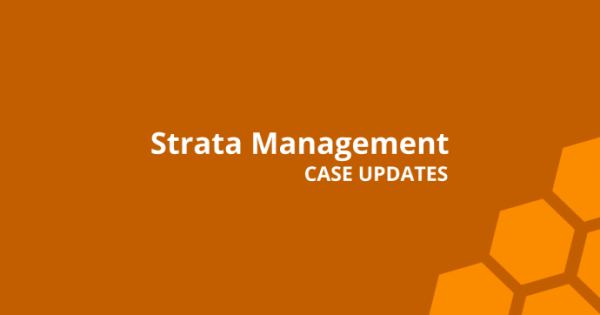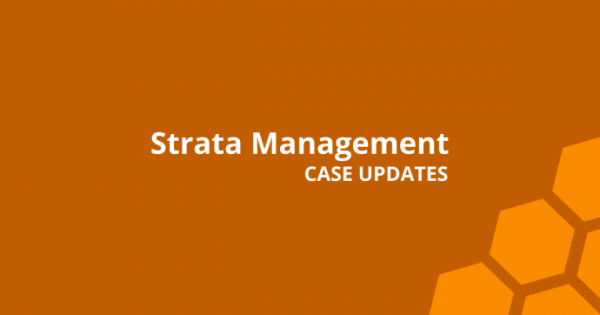The NSC Bill (National Security Council Bill): Is It A Threat Or A Safeguard For A Better Malaysia?
The NSC Bill (National Security Council Bill) was tabled at the Dewan Rakyat on 11 December 2015 and later passed by the Senate without any amendments on the 22 December 2015. The government claimed it would strengthen our ability to counter any threats but drew criticism from the opposition party and NGOs, who claimed that this law could easily be abused. There were also claims that the NSC Bill itself was a major blow to our constitutional democracy and human rights. The NSC Bill was immediately tabled at Parliament despite the fact that there were neither internal threats nor any terror alerts in Malaysia. In order for National Security Council Bill to become a law, it requires royal assent from the Yang DiPertuan Agong. There was no need to hurry the execution of the Bill.
Thus, we invited Syahredzan Johan from the Malaysian Bar Council, an advocate and solicitor of the High Court of Malaya, to share his opinions with us for a better understanding of this matter. He is currently in his 8th year of practice at the time of writing and practices only in litigation; Mr Johan also has a keen interest in public interest issues and constitutional issues.

WHAT IS THE NSC BILL?
The NSC Bill is essentially a bill where the first part of it creates this body known as the National Security Council. The NSC as it stands right now exists as an administrative council where it isn’t created by any law per se. Instead, it is an administrative body created by the government to coordinate issues such as disasters etc. For example, the flood situation in Kelantan during 2014, where the NSC is the body that organizes the flood relief efforts or rescue teams. In one way, the first part of this act creates this particular entity. The NSC is supposed to be the government’s central authority when it comes to matters concerning national security.
The second part of the bill focuses on the powers of the Prime Minister to declare an area as a “security area”. This is the most contentious part of the bill. The bill gives full power to the Prime Minister, upon advice of the NSC member to declare an area known as a security area. The “security area” is essentially an area where the Prime Minister can make the declaration if the NSC is of the view that security in that area is seriously disturbed or threatened by any person, matter or thing which causes or is likely to cause serious harm to the people, or serious harm to the territories, economy, national key infrastructure of Malaysia or any other interest of Malaysia, and requires immediate national response, the Prime Minister may, if he considers it to be necessary in the interest of national security, declare in writing the area as a security area. [1] This section actually covers a wide range of circumstances. Although the bill uses the language of National Security, it does appear that the Prime Minister can make a declaration of security area in any circumstance including situations that are unrelated to national security. The NSC may also issue executive orders which include the deployment of security forces. [2]
In addition, they can appoint a Director of Operations. This person is answerable only to the NSC and he himself has wide powers. For instance, the Director of Operations can remove persons from the security area, impose curfews, and control movement of persons and vehicles in the security area. He also has power over security forces. Security forces within the security area also have wide powers such as to arrest persons without warrants; to basically stop and search individuals; to enter and search any premises and the power to take temporary possession of any land, building or movable property.
INTERVIEW PART 1
EL: Is the NSC the same as the Security Offences (Special Measures) Act 2012 (SOSMA)? Both of the Acts deal with terrorism matters. Isn’t it merely a repetitive law?
SJ: SOSMA and the NSC cater to two different situations. SOSMA deals with individuals who are suspected to be terrorists, whether involved in terror groups or activities which falls under security offences (which can be included as offences against the state). SOSMA discusses more about the procedure on how we are dealing with them such as arrests, trials and investigation procedures. However for the NSC, if we’re looking at it objectively, when an area of the Federation is under threat from whomever it is; under this security threat, this law will cater to this situation. For me, this is not a repetitive law.
EL: The NSC is a bill which grants wide powers to the Prime Minister, Deputy Prime Minister and any minister based on Section 6 [3] by means of concentration of power which lies in the hands of the Prime Minister in declaring an area as a “security area”. Is Malaysia really transparent regarding this matter?
SJ: Apart from the fact that the law itself does not have enough safeguards, the main issue the government is facing right now is a lack of trust from citizens. Personally, the government right now is undergoing a trust deficit; even though they say they’re doing this in good faith, it is very difficult for citizens to believe that. There is a trust issue as to whether the government will carry out or utilise these wide powers in good faith and in the interest of the country. After all, we have seen laws being abused before this. We have seen this from SOSMA and ISA. Even if we changed the government or any of the top leaders, there aren’t enough safeguards within the law to ensure that it won’t be abused. The law itself is too wide to be given to the executives.
EL: Will the NSC curtail our constitutional rights? Can it restrain our rights to freedom of speech and freedom of association?
SJ: As I’ve mentioned, in the security area, it grants the security forces wide ranging powers. For example, they can search and seize property within the area; they can also enter into premises; they can search persons and they can even take a temporary possession of the land, building or mobile property. These are actually very wide powers given to the security officers and to the executives when it comes to the security area. It will inevitably affect the fundamental liberties of those within the security area. For example, during a public protest, they can fully utilise this bill (as it allows those circumstances to be used) and declare it as a security area, thus depriving a person the right to protest. The guarantees within the constitution will certainly be ignored or suspended under this legislation.
EL: Do you think that the NSC bill might be worse than Internal Security Act (ISA) in regards to immunity?
SJ: It is a bit premature to make a comparison between the NSC and the ISA. This is because we haven’t seen how NSC operates but we do know what happened with the ISA. Individuals who are not remotely linked with any security threats have been detained under the ISA. But if you think about it, the ISA doesn’t give power in a way that is as wide as the NSC. For ISA, there is power to detain and the detention part is without trial (and that’s abhorrent). The person who has been detained won’t have much recourse in the courts, which we are against but at all times, it is a power that is specific in terms of an individual or individuals and the power to detain. If you compare it with the NSC, the power is not just to arrest persons, but it also includes the power to take property, to control people from coming in.
This would actually significantly change the constitutional framework of our country. The NSC allows the country to be run by a sort of minority cabinet of people. And they can run the country if they declare the whole country as a security area and they can even declare a particular state as a security area. There is no limit to that. They can actually take over that state by declaring it as a security area and the state government’s rights would then be affected. The ISA doesn’t give that sort of power. In that sense, the potential of the NSC to affect more people in more ways than the ISA ever can is certainly far more terrifying.


